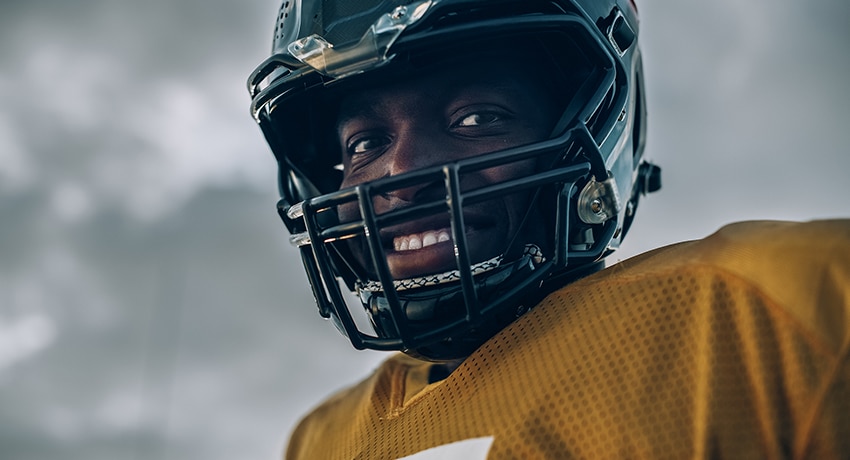Traumatic brain injury (TBI) is a major cause of death and disability in the United States, and it contributes to 30% of all injury deaths, according to the Centers for Disease Control and Prevention.

“It’s caused by a severe force to the head that disrupts brain function. Some of the causes can be motor crashes, assaults, falls, and sports,” said Summer Ott, PsyD, neuropsychologist with UT Physicians and associate professor in the Department of Orthopedic Surgery at McGovern Medical School at UTHealth Houston.
“Traumatic brain injury, particularly concussions, can happen to anyone of any age. It can just take a bad blow to the head,” said Ott, director of the Concussion Program at Memorial Hermann|Rockets Sports Medicine Institute.
Individuals can reduce their risk of head trauma — and repetitive head trauma — by following some recommended guidelines:
• Wear a helmet when playing sports, particularly football and other contact sports
• Wear a helmet when riding, whether it is a motorcycle, bicycle, horse, or skateboard
• Wear a seat belt in any moving vehicle
• Never drive under the influence of alcohol or narcotics
• Install child window guards and child stair gates at home
• Install grab bars inside and outside the bathtub and place anti-slip mats
• Keep eyeglass prescription current
Anyone who has an accident with a head impact should be observed.
“When there’s a hit to the head, it’s definitely a monitoring situation,” Ott said. “Sometimes the symptoms are delayed and may not appear until the next day.”
In general, if someone suffers a blow to the head but seems fine, observe the person for a few days. Look for signs of headaches, dizziness, confusion, fatigue, or light and sound sensitivity. If the person begins to vomit, slur or repeat words, or lose consciousness, seek urgent medical care. Then follow up with a brain injury specialist, Ott advised.
It is also important not to overlook TBI, especially in situations of polytrauma.
“Brain injury can get missed when a person suffers from several injuries at once,” she said. “Emergency doctors focus on treating the life-threatening injuries first, as they should, but it’s likely the person suffered a head injury as well and needs to be checked or observed for brain injury.”
TBIs, particularly concussions, can be treated with appropriate rest and medical and behavioral management. Depending on the severity of the brain injury, many people can make a significant or even full recovery.
“Everyone recovers at a different rate. One size doesn’t fit all for brain recovery,” Ott said, “but the sooner the person is introduced to treatment, the better the outcome is going to be.”
As a provider and researcher in the field of brain injury and concussions, Ott’s goal is to move past diagnosis and toward effective treatment.
“We’re trying to help people get better, faster,” she said. “Whether a patient is 6 years old or 75 years old, the point is not to just diagnose but to really help the patient get back on track.”



